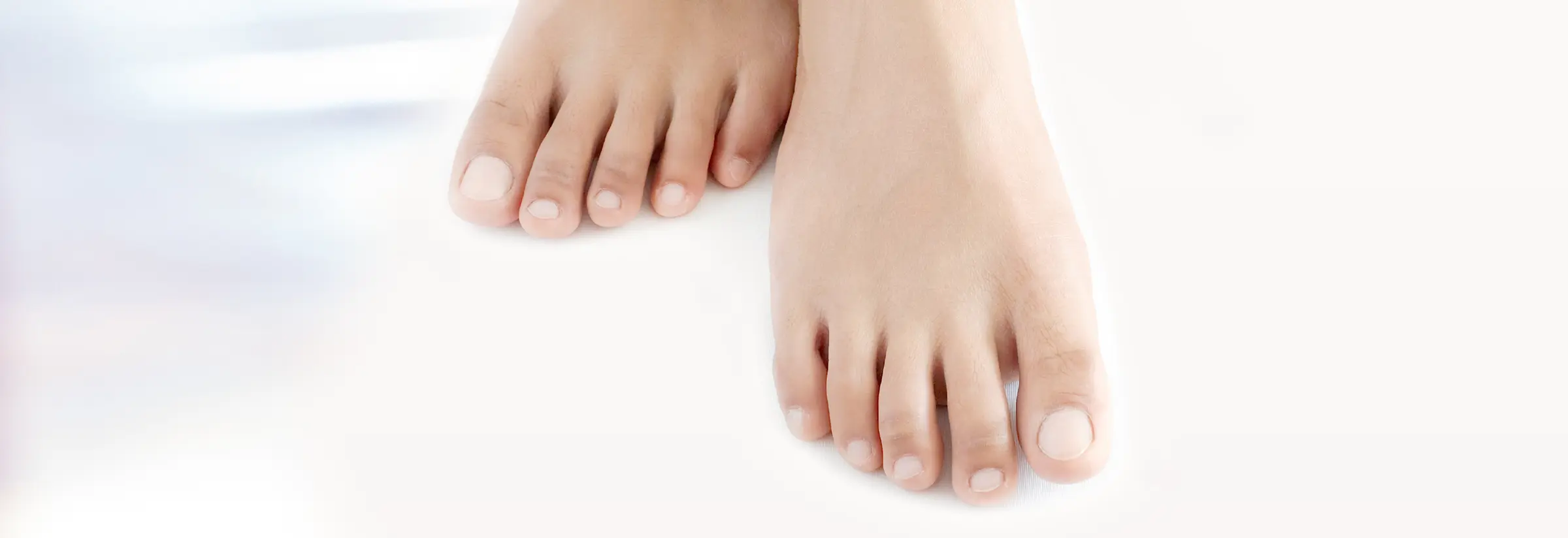
Dermatologie
NAIL DISEASES – EFFECTIVE TREATMENTS FOR HEALTHY NAILS
Well-groomed, manicured fingernails and toenails are important to many people. They often take care of their toenails and fingernails themselves. This is easily possible with healthy nails. However, if the nail is injured, ingrown or affected by nail fungus, a specialist in nail diseases must be consulted. In addition to the pain, any damage is like an open door for infection.
Our specialised dermatalogists will advise you on all aspects of treatment methods for nail diseases. You are also in the best hands with them when it comes to incisions or sclerotherapy for nail surgery. Our dermatologists can also perform these operations gently and precisely using a laser.
We have put together a compact list of the causes and treatment options for nail fungus and ingrown nails. These nail diseases are among the most common in Germany. Find out more and then make an appointment for your treatment.
NAIL FUNGUS – CAUSES AND THERAPIES
Healthy skin and intact nails are immune to infection by fungal spores. If a nail fungus occurs, it is usually due to a weakened immune system or a mechanical, often micro-fine injury to the nail. Poor circulation, for example in smokers, diabetes, allergies or psoriasis, can also favour nail fungus.
Nail fungus does not heal on its own. On the contrary, if it remains untreated, the nail plate is destroyed and the infection can spread to other nails. Nail fungus almost always occurs on the toenails. The first sign of nail fungus is when the nail appears increasingly dull and lacklustre. A yellow-brownish discolouration then spreads, the nail thickens and may crumble when cut.
If you notice these symptoms, consult a dermatologist as soon as possible and don’t just wait and see. Nail fungus is easy to treat, even if it requires a little patience. Antifungal creams, ointments and varnishes are applied to the previously filed nail surface.
It is important that the treatment of nail fungus is carried out consistently until the infected nail has completely grown out. This can take up to six months. Crumbling, infected areas must also be removed regularly. In severe cases, such as when several nails are infected or the infection keeps recurring, medication may be prescribed. These inhibit the growth of the fungus, but must also be taken for several months.
INGROWN NAIL – CAUSES AND TREATMENTS
An ingrown nail can be favoured by genetic factors. However, it is often shoes that are too tight or incorrect nail cutting that lead to an ingrown nail. Accordingly, the big toe is often affected. Painful swelling and inflammation in the nail bed irritate the skin. The body’s own repair mechanism then forms granulation tissue. However, this causes the nail to penetrate even deeper into the nail bed.
Surgical intervention can often be avoided by early intervention in the initial stages of an ingrown nail. In advanced or recurring cases, minor surgical interventions lead to pain relief and healing.
The treatment for an ingrown nail depends on the cause and severity.
These methods are frequently used:
- Taping or splinting: In the initial stages, the nail is pulled away from the nail wall. The nail is then placed underneath with a piece of cotton wool or a small silicone tube. This gives the nail more space. The pain subsides spontaneously.
- Surgical nail bed reduction (Emmert plastic surgery): The lateral part of the nail, the nail bed, the nail root and the lateral nail wall are cut out in a wedge shape. Doctors call this procedure a nail excision. This procedure narrows the nail and the front part of the toe.
- Surgical narrowing of the nail root: In this procedure, the lateral nail wall remains intact. The nail pocket is cut open and only the lateral part of the nail root is removed.
